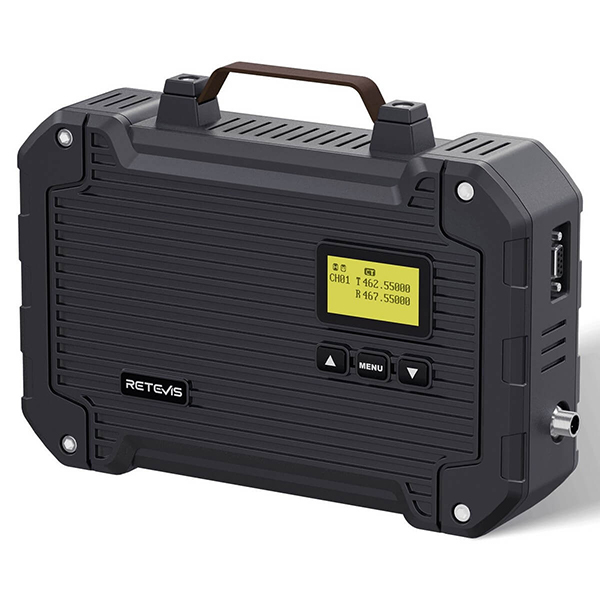Everything You Need to Know Before Purchasing a GMRS Repeater Station for Your Farm

Everything You Need to Know Before Purchasing a GMRS Repeater Station for Your Farm
Running a farm requires reliable communication—whether you're coordinating with workers, monitoring livestock, or responding to emergencies. A GMRS repeater station can dramatically improve your radio coverage across large fields, barns, and remote areas of your property. But with so many options available, how do you choose the right one?
In this guide, we’ll break down the key features your farm’s GMRS repeater should have, ensuring you get clear, long-range, and weather-resistant communication without unnecessary complexity.
Why Your Farm Needs a GMRS Repeater
Farms often face communication challenges due to:
-
Large distances between barns, fields, and equipment sheds
-
Obstructions like silos, trees, and hills that block signals
-
Noisy environments where standard handheld radios fall short
A well-chosen GMRS repeater solves these issues by boosting signal strength, extending range, and ensuring reliable transmissions—keeping your team connected at all times.
5 Must-Have Features in a Farm-Ready GMRS Repeater
1. High-Performance Duplexer for Interference-Free Communication
A quality duplexer prevents signal overlap, ensuring your repeater can transmit and receive simultaneously without cross-talk. This is crucial for:
Clear voice communication even during busy operations
Stable connections between tractors, barns, and distant workers
Reduced downtime caused by radio interference
Avoid cheap repeaters with poor filtering—opt for a professional-grade duplexer for dependable farm use.
2. 25W High Power for Maximum Coverage
A 25W GMRS repeater provides the ideal balance of extended range and FCC compliance, making it perfect for farms. Benefits include:
Stronger signals that reach across pastures and wooded areas
Better penetration through metal barns and machinery
Reliable comms during harvest season or emergencies
Unlike weak handheld radios, a 25W repeater ensures everyone stays in touch, no matter where they are on your property.
3. Portable & Durable Design for Versatile Use
Farms need equipment that can move where it’s needed. Look for:
Lightweight, compact construction for easy relocation
Rugged housing to withstand dust, vibrations, and farm conditions
Multiple mounting options (tractors, barn lofts, utility vehicles)
A portable repeater lets you set up temporary comms hubs during planting, livestock roundups, or equipment repairs.
4. Quick & Easy Setup (No Tech Expertise Required)
Farmers don’t have time for complicated installations. The best repeaters offer:
Plug-and-play operation—just connect the antenna and power
Pre-configured settings for immediate use
Minimal wiring to avoid frustrating setup delays
A true "set it and forget it" repeater means more time working and less time troubleshooting.
5. IP66 Waterproof Rating for All-Weather Reliability
Outdoor equipment must endure rain, humidity, and dust. An IP66-rated repeater guarantees:
Protection against heavy downpours and dust storms
Long-term durability in open-air barns or tractor mounts
Year-round performance without weather-related failures
Don’t risk a repeater dying during a storm—choose one built for farm conditions.







